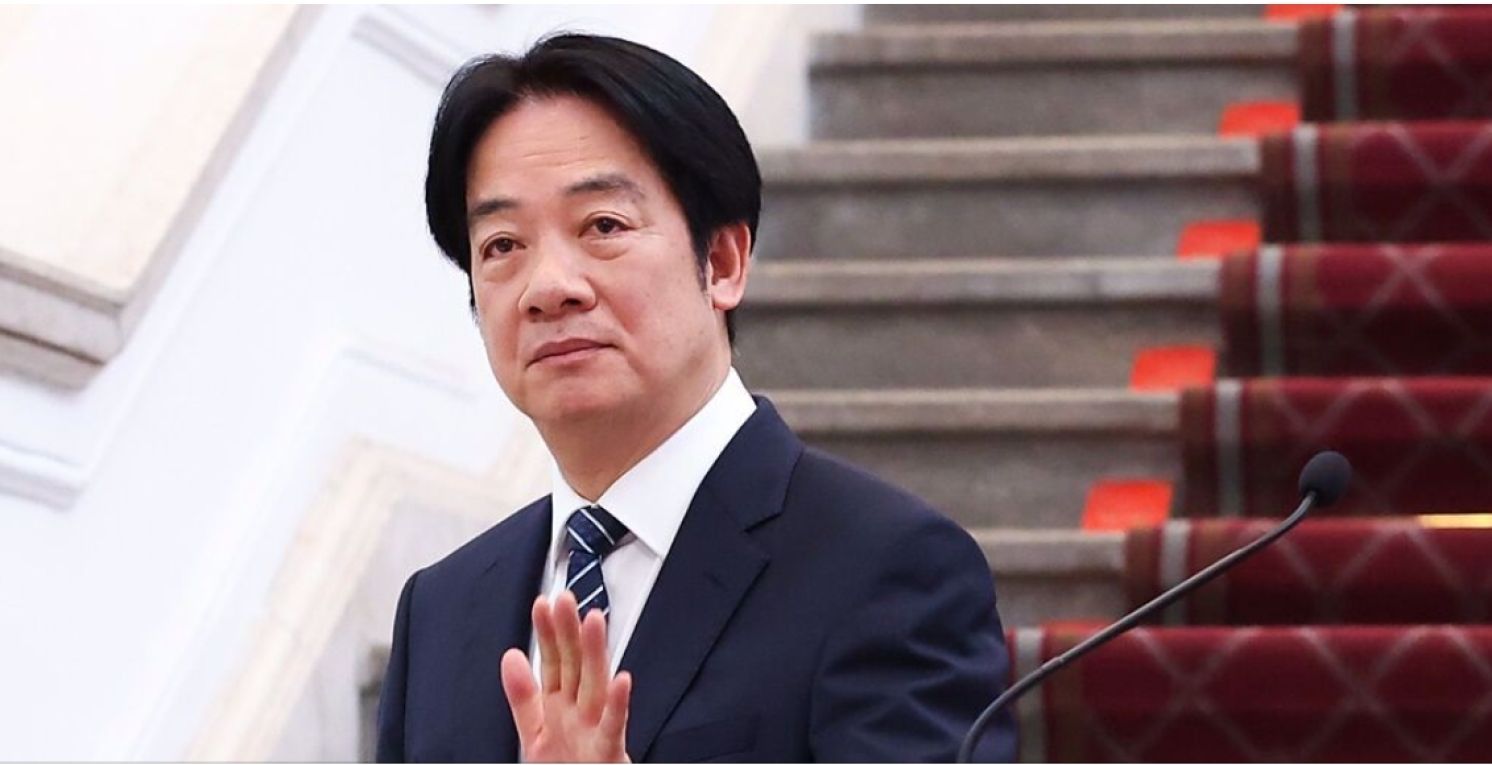
President Lai's First Anniversary Speech Did Not Mention Cross-Strait Relations
By Huang Kwei-Bo, China Times, May 21, 2025
Cross-Strait relations have a profound impact on the development of the Republic of China (Taiwan). No national leader should omit such a significant issue from a vital address. As the saying goes, "There's a reason behind everything," and this omission deserves careful scrutiny.
Ironically, while the president of the Republic of China avoids mentioning the R.O.C. in such speeches, the public doesn’t seem particularly concerned. The inaugural address last year mentioned the R.O.C. but also misrepresented some aspects of its constitutional system. Deliberate avoidance this year raises questions—whether it is a blessing or a curse for the R.O.C. remains unclear.
The Republic of China plays a complex role in cross-strait relations: as the successor to the Qing dynasty, reclaiming lost territories like Taiwan, Penghu, and Manchuria from unequal treaties, and as the government retreating to Taiwan, Penghu, Kinmen, and Matsu, unable to maintain China's unification. This complicated situation is a matter of national security and survival—with the United States playing another key role.
President Lai has clearly taken a hardline cross-strait stance in recent months. So why did he altogether avoid addressing this increasingly tense relationship in his latest speech? We can rule out the possibility that the Lai administration believes cross-strait relations no longer matter. We can also dismiss the idea that the sovereignty issue has been resolved or is easing. It's also unlikely this was a mere oversight during speechwriting. That leaves two probable explanations: pressure from Beijing or, more likely, from Washington.
President Donald Trump of the United States raised eyebrows during a White House press conference on May 13, after a U.S.-China economic dialogue in Geneva, when he said a particular deal would be "good for unification and peace." This has sparked concern about whether Mr. Trump and his inner circle are shifting their policy on the Taiwan Strait. President Lai’s complete omission of cross-strait issues in his speech on May 20 might reflect Washington’s deep concern that any provocative remarks could worsen tensions—leading to either passive compliance or proactive self-censorship on Taiwan’s part.
Passive compliance is easy to understand: if the United States disapproves of inflammatory rhetoric in the speech, it might directly “suggest” that President Lai’s national security team omit such content. Proactive self-censorship might come from uncertainty over Mr. Trump’s real stance, prompting the Lai administration to adopt a “say less, make fewer mistakes” approach—cutting cross-strait content altogether.
More broadly, Taiwan’s autonomy under a DPP administration remains limited within the framework of U.S.-China power competition. Only when neither power shows direct concern or interference does Taiwan have a little room for maneuver. Both former President Tsai Ing-wen and President Lai have claimed Taiwan is the “chess player” rather than the “chess piece”—but such claims are quickly exposed by the harsh realities of geopolitics.
Finally, we must note that the complete absence of cross-strait references—even the DPP’s usual term “China” to refer to the Beijing authorities— does not mean the problem has disappeared.
Cross-strait relations are not just a political conflict; they are also a clash of living systems. The Lai administration continues to promote a "de-Sinicized" Taiwanese national identity, erasing history before 1949 and even thanking foreign powers for claiming that the United Nations General Assembly Resolution 2758 did not determine Taiwan’s status—conveniently ignoring the ironclad historical fact that Taiwan was a province of the R.O.C. at the time. These political moves only intensify Beijing’s sense of urgency, especially as it has never ruled out non-peaceful means of unification. The result: greater threats and quasi-military actions around Taiwan, Penghu, Kinmen, and Matsu.
Taiwan’s economic ties with mainland China are deep, and people-to-people exchanges were still frequent before the pandemic. Each side has its strengths and weaknesses. If the systemic divide between the two sides fades due to growing unfamiliarity, will only the political dispute—the most tension-prone aspect—remain?
This time, for the Lai administration, cross-strait relations have truly become the proverbial “elephant in the room”: a significant presence, opportunity, or challenge in the form of mainland China—deliberately ignored and undiscussed. This is a loss for all Taiwanese who care about cross-strait peace and wish to live stable lives.
(The author is a professor at the Department of Diplomacy, National Chengchi University.)
From: https://www.chinatimes.com/opinion/20250521004392-262104?chdtv
〈Back to Taiwan Weekly Newsletter〉